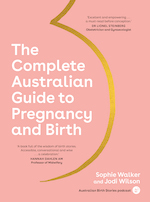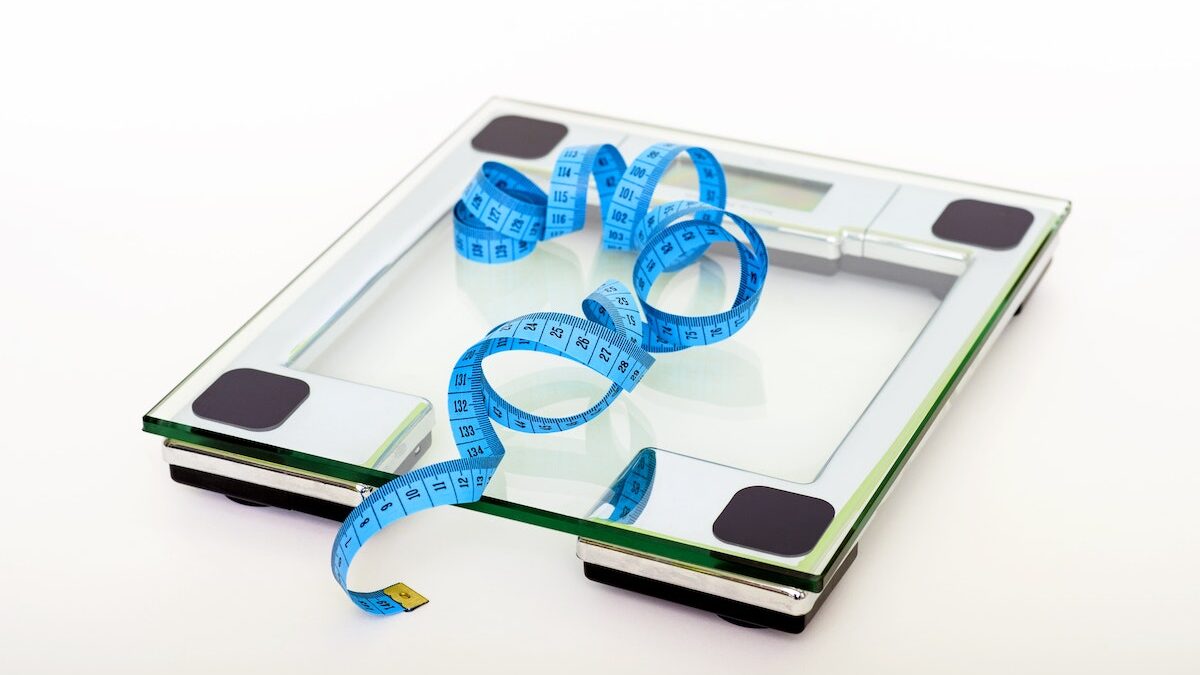Spoiler: The answer is more complicated than you think.
We all start from a different place when we conceive and the way we respond to pregnancy is unique. All bodies are different and this is particularly pertinent in pregnancy; now is not the time for comparison, especially when it comes to filtered photos on Instagram. Talking about weight—both in and out of pregnancy—is tricky for many of us and it can be a particularly sensitive topic when you’re coming to terms with your rapidly changing pregnancy body.
Your body and the wonderful job it’s doing in pregnancy – regardless of your size or weight – is amazing. While the number on the scale is a small part of your pregnancy journey, it can definitely dictate your care.
Evidence suggests that excess weight gain in pregnancy increases your risk of pregnancy complications—typically gestational diabetes (GD) and high blood pressure—which can subsequently affect your baby and your birth options, as well as increasing the likelihood of birth interventions. On the flip side, insufficient weight gain increases a risk of growth restriction for your baby and preterm labour. Some low-risk birth centres or independent midwives will not take on women with a low or high body mass index (BMI).
Measuring how you gain weight during pregnancy
In Australia, weight gain in pregnancy is referred to as gestational weight gain (GWG) and is guided by your BMI, which is your pre-pregnancy weight in kilograms divided by your height in metres squared. For example, if your pre-pregnancy weight is 72 kilograms and your height is 1.62 metres, divide your weight by your height and then divide again by height: 72 ÷ 1.62 ÷ 1.62 = 27. This would mean your BMI is 27.
Many people are quick to comment on the outdated nature of BMI, which fails to take into account body composition or your overall picture of health. Weight gain in pregnancy is also not linear and can fluctuate from week to week; you may lose weight in the first trimester, gain higher amounts in the second trimester and slow down again in the third.
Weight gain is also often affected by fluid retention in the later stages of pregnancy, whereas weight loss is a common side effect for women who suffer from severe nausea and vomiting in pregnancy. There is also significant stress associated with the scales. Generally, women feel more supported when their care provider focuses on overall health and wellbeing as opposed to numbers on the scale.
Being weighed is just like any other routine check in your pregnancy—it requires your informed consent. In fact, for many women, getting weighed at each appointment becomes such a stress, that it dictates their entire pregnancy experience and stands in the way of their ability to form an open and trusting relationship.
You can expect your care provider to weigh you at your first appointment and again when you are admitted to hospital for birth but, generally speaking, you won’t be weighed at every appointment. If getting weighed is a trigger for you, talk to your care provider about it.
If you have any pre-existing conditions, if you are at risk of gestational diabetes (GD) or you have been diagnosed with hyperemesis gravidarum (HG), your care provider may insist on weighing you at each appointment. If this is your experience and you feel like your weight is dictating your choices, remember that you have every right to ask questions, request statistics and be given unbiased, evidence-based information in return.
Navigating body changes during pregnancy
There is a significant amount of societal pressure when it comes to our bodies in general. But when you’re pregnant, this expectation reaches new heights; generally people are in awe of a pregnant woman, and fast to criticise her, too. A growing belly is a magnet for remarks and, sometimes, hands.
We are dealt an onslaught of glamorous pregnancy images via social media and while they definitely capture the beauty of glowing skin and a blossoming belly, we need to remind ourselves that they don’t tell the whole, accurate story. We’ve even heard women on our podcast admit their disappointment that they didn’t experience an “Instagram pregnancy”. Remember, behind every frame there is often discomfort, doubt and overwhelm—pregnancy definitely doesn’t discriminate.
As you step into the second trimester and your belly starts showing, you may feel like your body is not your own. Despite the obvious—you’re literally sharing your body with a growing baby—it’s a very normal reaction to have as you surrender to the inevitable.
Your body changes quite remarkably from conception till birth; as well as growing a baby, you’re growing a placenta (a whole new organ!), your blood volume significantly increases, your abdominal organs move to accommodate your growing uterus, and your body stores fat in preparation for breastfeeding. These changes (and their uncontrollable nature) can be really challenging, especially if you have a history of body dysmorphia or an eating disorder.
It’s also understandable that you may grieve the body that was once your own – the one that feels like it may never return. For the first time you may be watching stretch marks appear before your eyes while marvelling at the fullness of your belly and your breasts.
It’s normal to oscillate between gratitude for all your body is doing and grief for the body that seems to have disappeared behind the bumps, lines and curves that are now pronounced and protruding. Some women admit to feeling glorious in their pregnancy, but others battle the overwhelm of a body that’s changing in the most confronting ways.
The way you feel about your body matters; no one is allowed to dismiss it. And yet, there is a lot of focus on your pregnant body; it’s measured and compared, you’ll be asked about what you’re eating and how you’re moving, your choices may be questioned and critiqued. We know that there is a strong link between mental and physical health, so if you are finding it difficult to accept and embrace the physical changes of your pregnancy, chat to your care provider and they may refer you to a perinatal counsellor.
Your body after birth
“If there is one piece of advice that I find myself giving every day, to women of all ages and sizes and cultures, it’s to never apologise for your body. Do not apologise for your hairy legs when I examine you; do not apologise for not having waxed when you attend for your cervical screening test; do not apologise for your stretch marks, your caesarean scar, your lumps and bumps, or your sweat. I do not remember when I last heard a man apologise for their body. Embrace and own the changes that your unique life and your fertility journey have brought to your body; you are strong and capable and perfect as you are,” says Dr Joanne Chaffey, GP.
We seem to think that once we’ve birthed our baby, we’ll feel more at home in our body, reclaiming what was lost during the pregnancy. And yet, the postpartum body is a tender, leaking, soft cushion of a vessel that deserves time, love and compassion to heal from the significant experience of conception, pregnancy and birth. If you start to think about your pregnancy body as a journey in itself, you may be more inclined to respect your postpartum journey, too.
Relevant: How to lose the baby weight: The surprising facts about weight loss after pregnancy

Text from The Complete Australian Guide to Pregnancy and Birth by Sophie Walker and Jodi Wilson. Murdoch Books RRP $34.9
How helpful was this article?
Click on a star to rate it!
0 / 5. 0
Be the first to rate this post!
Sophie Walker & Jodi Wilson
Related posts
Subscribe
Receive personalised articles from experts and wellness inspiration weekly!


